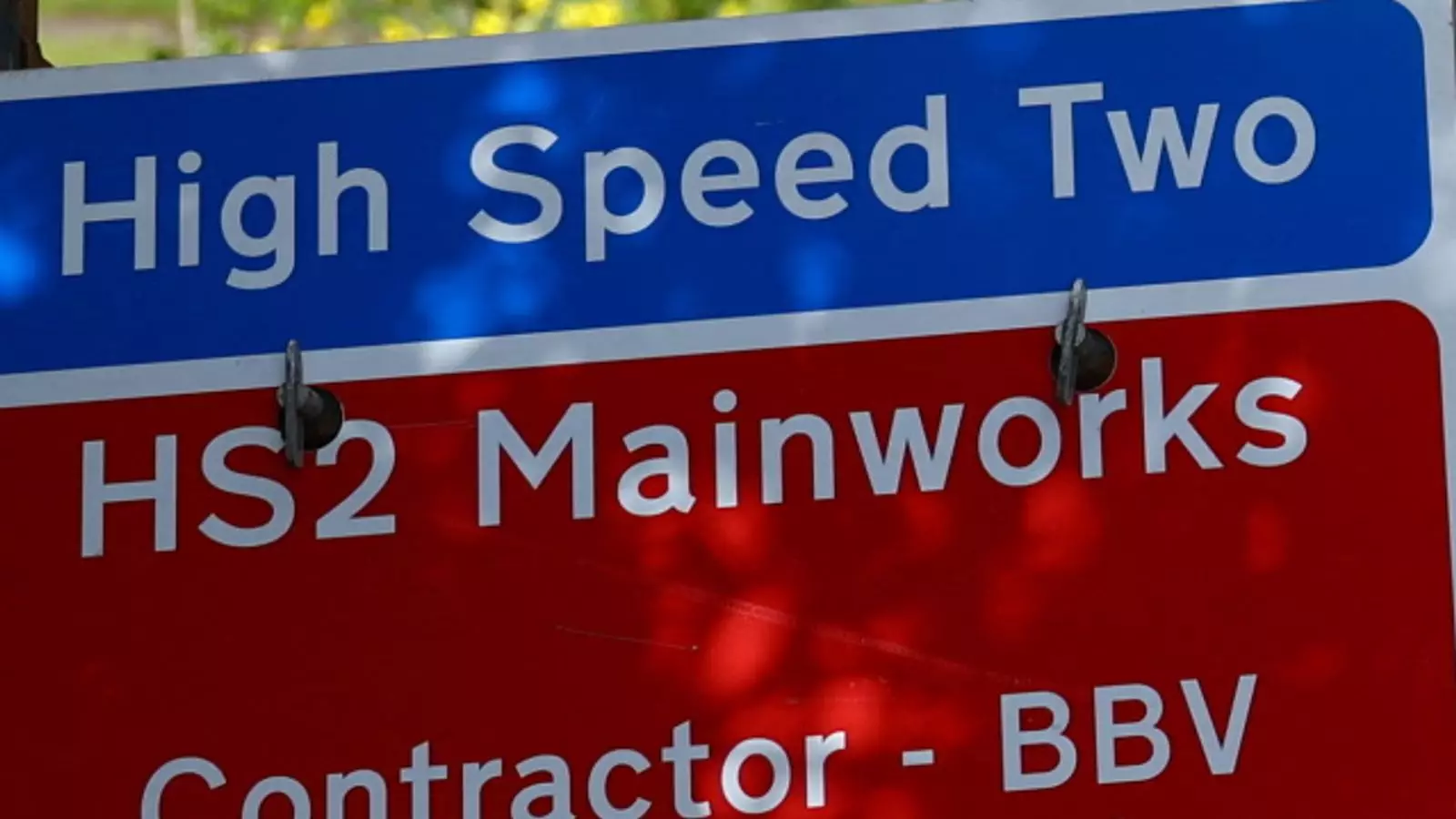The future of the HS2 rail project is once again in question, as it appears that the northern section of the high-speed line, planned between Birmingham and Manchester, may be abandoned due to concerns over its escalating costs. Sky News has reported that Prime Minister Grant Shapps is considering scrapping the northern leg of HS2, while the fate of the final section between Old Oak Common and Euston in London also remains uncertain. This development comes amidst growing worries about the project’s price tag and its numerous delays.
Speaking on Sky News’ Sunday Morning with Trevor Phillips show, Grant Shapps did not confirm the reports, but he hinted at the possibility of changes to the “sequencing” and “pace” of the HS2 project due to its soaring costs. The former transport secretary, now in charge of the Ministry of Defence, emphasized the limitations of government budgets, stating that “money is not infinite.” Shapps emphasized the need to ensure that the project is delivered efficiently and in a manner that works for taxpayers. He expressed concern about the potential for an open-ended commitment of funds and suggested the need for a reevaluation of the project’s timeline.
Grant Shapps also highlighted the financial pressures caused by the COVID-19 pandemic and the ongoing conflict in Ukraine, which have strained the public purse. He argued that the government must respond to changing circumstances and adjust the allocation of infrastructure funding accordingly. Shapps acknowledged that these unforeseen events have compelled the government to reconsider its approach to the HS2 project and the expenditure of significant sums of money. He stressed the importance of responsible financial decision-making and criticized any opposition that fails to recognize the need for such adjustments.
While the decision to potentially scrap the northern leg of HS2 may be seen as a pragmatic response to cost concerns, it has faced criticism from various quarters. Andy Burnham, the mayor of Greater Manchester, voiced his discontent with the decision, arguing that people in the North of England are often treated as “second-class citizens” when it comes to transport. Burnham expressed concern that, if the project is abandoned, the North-South divide will deepen, with the North being left with outdated infrastructure while the southern half of the country benefits from modern high-speed rail connections. He accused the government of making false promises and criticized what he perceived as desperate acts from a struggling administration.
The HS2 project was first proposed by the Labour Party in 2009 but gained approval from the coalition government. It aimed to connect the South, Midlands, and North of England with state-of-the-art infrastructure. However, despite significant investment, the project has been plagued by delays and escalating costs. The eastern leg of HS2 has been completely scrapped, while work between Birmingham and Crewe has been delayed due to inflation. The overall cost of the project has been estimated to exceed £100 billion, and the infrastructure watchdog has deemed it “unachievable.”
Plans to abandon the northern section of HS2 have sparked controversy across the political spectrum. Former Prime Minister Boris Johnson has condemned the decision as “desperate” and “Treasury-driven nonsense,” while his predecessor David Cameron reportedly advised against it. Critics argue that scrapping the northern leg would undermine promises to level up regional development and exacerbate regional inequalities. The decision is seen as a significant fracture in the government’s commitment to creating a more balanced and connected country.
The potential scrapping of the northern section of HS2 raises significant concerns about the future of the project and its impact on regional connectivity and development. Grant Shapps’ comments suggest a shift in government plans and a reevaluation of the project’s timeline and costs. However, the decision has faced criticism for perpetuating regional disparities and raising questions about the government’s commitment to leveling up the country. As the debate continues, the fate of HS2 hangs in the balance, leaving those hoping for improved rail connections between Birmingham, Manchester, and London uncertain about the project’s future.


Leave a Reply